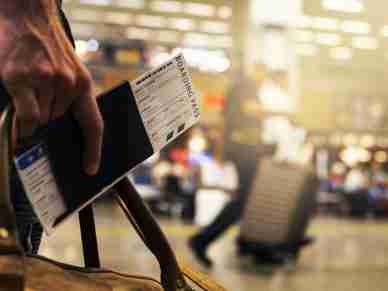Slip and fall accidents are among the most common causes of personal injury claims, particularly for businesses. Whether it’s due to wet floors, uneven surfaces, or poor lighting, slip and fall incidents can lead to significant financial liability if someone is injured on your property. For business owners, liability insurance is a critical safeguard that helps mitigate the risks associated with these claims.
Understanding how liability insurance works and how it protects your business in the event of a slip and fall lawsuit is essential for maintaining financial stability. In this article, we’ll explore how liability insurance shields your business from slip and fall lawsuits and how it impacts the overall claims process.

The Role of Liability Insurance in Slip and Fall Claims
Liability insurance plays a crucial role in protecting businesses from the financial burden of personal injury claims, including slip and fall accidents. If a customer, client, or visitor is injured on your property due to unsafe conditions, they may file a lawsuit seeking compensation for medical expenses, lost wages, pain and suffering, and other damages.
Without liability insurance, the cost of defending a lawsuit and paying out damages can quickly add up, potentially crippling a small business financially. Liability insurance covers these costs, helping to ensure that your business remains solvent even if you face a significant claim. This type of insurance also typically covers the legal fees associated with defending your business in court.
When someone files a slip and fall claim against your business, your insurance provider steps in to manage the process. But you may wonder, does insurance affect a slip and fall claim in ways that influence the outcome or settlement? The insurance company works to evaluate the claim, determine liability, and decide whether to settle or defend the case in court. By covering these aspects, liability insurance protects your business from unexpected financial strain.
How Liability Insurance Determines Fault
One of the key elements of any slip and fall claim is determining who is at fault for the accident. To hold a business liable, the injured party must prove that the property owner or manager was negligent in maintaining safe conditions. This means showing that the business either caused the hazardous condition, knew about it and failed to fix it, or should have reasonably known about the danger and addressed it.
Liability insurance companies conduct thorough investigations to assess whether your business is at fault for the accident. This investigation often involves reviewing security footage, gathering witness statements, inspecting maintenance records, and consulting experts to determine if the business took reasonable steps to prevent the accident. If the insurance company concludes that your business is not at fault, they will likely defend you in court and challenge the claim.
However, if the insurance provider determines that the business did not meet its duty of care, it may choose to settle the claim out of court to avoid prolonged litigation and higher legal costs. In either case, liability insurance shields your business from direct financial responsibility.
Coverage for Legal Defense Costs
One of the most significant ways liability insurance protects your business in a slip and fall lawsuit is by covering the costs of legal defense. Legal fees can quickly escalate in personal injury cases, especially if the case goes to trial. Even if the claim is ultimately dismissed, the cost of defending your business in court can be substantial.
Liability insurance covers the cost of hiring a lawyer, gathering evidence, conducting depositions, and all other legal expenses involved in defending your business. This allows you to focus on running your business without worrying about how you will afford a legal defense.
It’s important to note that your insurance provider has a vested interest in protecting your business and will work to either dismiss the claim or settle for an amount that is fair and reasonable under the circumstances. In cases where the insurance company determines that a settlement is more cost-effective than going to trial, they will negotiate with the claimant on your behalf.
Settlement vs. Litigation: How Insurance Makes the Decision
When faced with a slip and fall lawsuit, the decision to settle or go to trial depends on several factors, including the strength of the evidence, the severity of the injury, and the potential cost of defending the claim. Liability insurance companies typically have experienced claims adjusters and legal teams who assess the likelihood of success in court versus the benefits of settling the case early.
In many instances, it is more cost-effective for the insurance provider to settle the case out of court rather than pursue a lengthy trial. Settlements allow both parties to avoid the uncertainty and expense of litigation while resolving the claim more quickly. However, if the insurance company believes the claim is unjustified or the business was not at fault, they may choose to defend the case in court.
Whether the case is settled or litigated, liability insurance protects your business from the financial impact of the decision. The insurer covers settlement amounts or court-ordered damages, ensuring that your business does not bear the direct cost of the lawsuit.
Coverage Limits and Out-of-Pocket Costs
While liability insurance offers significant protection, it’s important to understand that policies typically have coverage limits. These limits define the maximum amount the insurance company will pay in the event of a claim. If a slip and fall claim exceeds the coverage limit, your business may be responsible for paying the difference out of pocket.
For example, if your policy has a $1 million coverage limit and the court awards $1.5 million to the injured party, your business may be liable for the additional $500,000. To avoid such scenarios, many businesses opt for higher coverage limits or umbrella insurance policies that provide additional protection.
It’s essential to review your liability insurance policy regularly to ensure that your coverage limits are adequate for the risks your business faces. By adjusting your coverage as needed, you can minimize the risk of out-of-pocket expenses in the event of a large claim.
The Importance of Maintaining a Safe Environment
While liability insurance offers crucial protection, the best way to avoid lawsuits is by maintaining a safe environment for your customers, clients, and visitors. Regular maintenance, prompt repair of hazardous conditions, and clear signage can significantly reduce the risk of slip and fall accidents on your property.
Conducting routine inspections, documenting safety protocols, and training employees to recognize and address potential hazards can all help minimize the chances of an accident occurring. Not only does this protect your business from liability, but it also creates a safer, more pleasant environment for everyone who enters your premises.
By taking proactive measures to prevent accidents, you reduce the likelihood of facing a slip and fall lawsuit, even if your liability insurance is there to protect you in case something does go wrong.

Liability insurance plays a vital role in protecting your business from the financial impact of slip and fall lawsuits. It covers legal defense costs, settlement payments, and damages awarded in court, ensuring that your business does not bear the brunt of a costly claim. Understanding how your policy works allows you to make informed decisions about your coverage and the steps you can take to mitigate risk.
















Leave a Reply